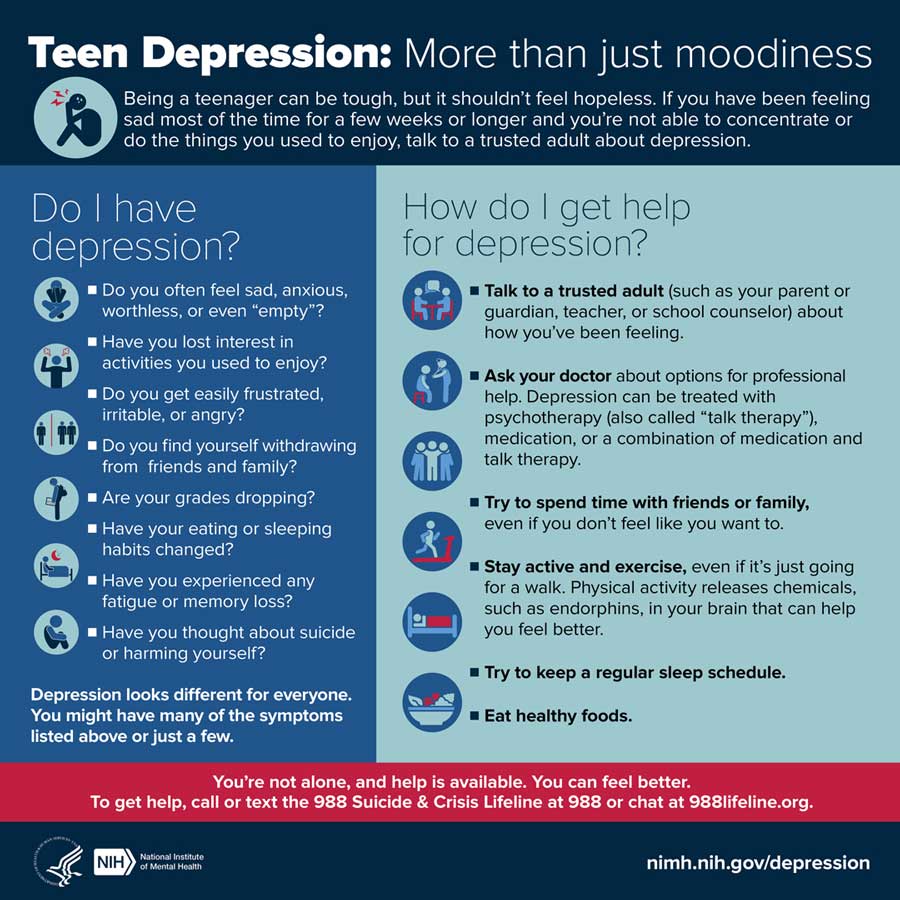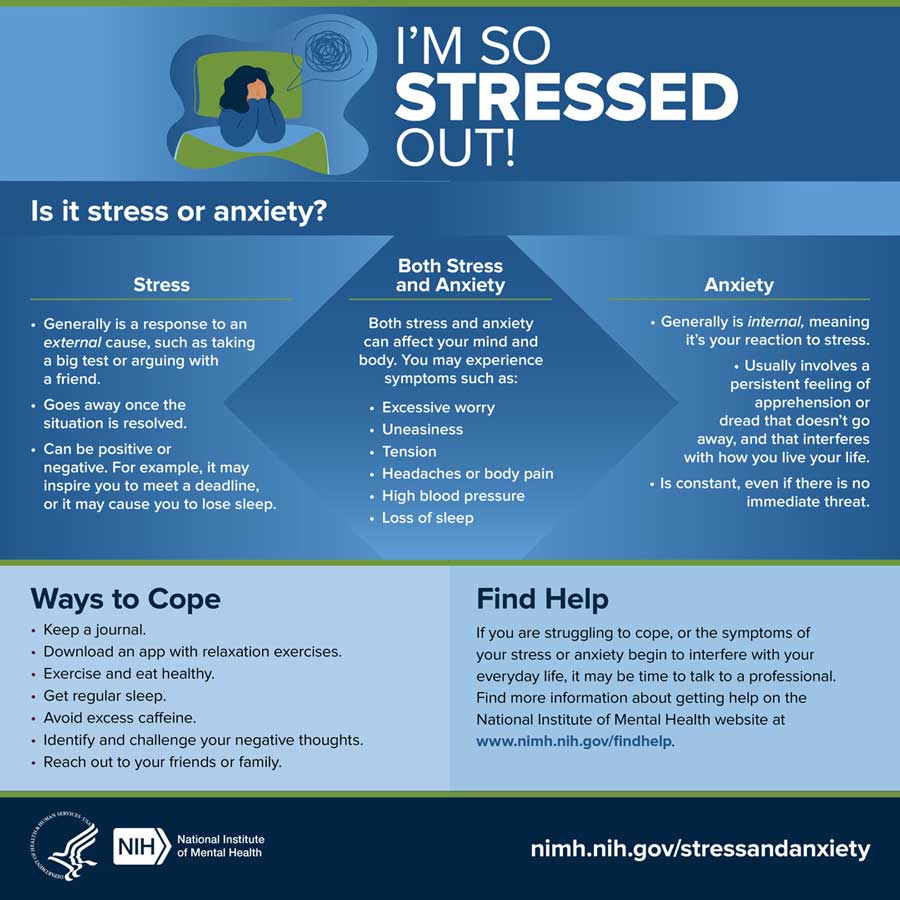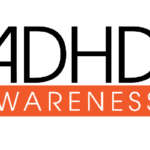Recognizing the Signs and Seeking Help

Raising a child can be challenging, and it’s not uncommon for children to experience a range of emotions and behaviors.
While many of these behaviors are a normal part of growing up, some may indicate a more serious mental health issue. This article aims to help parents and guardians recognize the signs of potential mental health concerns in children and adolescents, and provide guidance on when to seek help from a professional.
Early intervention with an experienced mental health professional or child and adolescent psychiatrist is essential in addressing conditions such as depression, anxiety, ADHD, and other mental health issues in young people.
Mental health issues often have their roots in childhood, manifesting as anxiety disorders, attention-deficit/hyperactivity disorder (ADHD), depression, mood disorders, eating disorders, or post-traumatic stress disorder (PTSD). In fact, 3 out of 4 people with mental health problems showed signs before they were 24-years-old.
Left untreated, these conditions can hinder a child’s ability to achieve their full potential. Many adults pursuing mental health care often look back on their own childhood struggles with mental disorders, expressing regret for not receiving assistance earlier.
Signs To Watch For in Older Children and Teenagers
- Loss of interest in previously enjoyed activities
- Low energy levels
- Sleep disturbances or excessive sleepiness during the day
- Increased isolation and avoidance of social activities
- Fighting with family and friends
- Feeling numb or like nothing matters
- Ruminating over certain things or memories
- Random aches and pains
- Excessive dieting, exercise, or fear of weight gain
- Changes in appetite or sleep patterns
- Self-harm behaviors (e.g., cutting or burning skin)
- Substance use (smoking, drinking, or drug use)
- Engaging in risky or destructive behaviors
- Suicidal thoughts
- Periods of highly elevated energy and activity with less need for sleep
- Believing someone is controlling their mind or hearing things others cannot hear
When To Seek Help
Consider seeking professional help if your child’s behavior persists for a few weeks or longer, causes distress for them or your family, or interferes with their functioning at school, at home, or with friends. If your child’s behavior is unsafe or if they express a desire to hurt themselves or others, seek help immediately.

First Steps
Begin by discussing your concerns with individuals who frequently interact with your child, such as teachers. Talk to your child’s pediatrician, psychiatrist, therapist, or healthcare provider, describing their behaviors and any information gathered from others.
Assessing Your Child’s Behavior
A comprehensive evaluation by a mental health professional can provide clarity on the underlying issues and help determine the most effective treatment options. This evaluation may include interviews with parents, information gathering from the school, and direct interviews or testing with the child.
Treatment Options
Treatment recommendations may include one or a combination of:
- Psychotherapy (talk therapy) including Cognitive Behavioral Therapy
- Medication
- Family counseling
- Support for parents

Coping Stratgies For Children and Teens With Symptoms of Anxiety or Depression
Anxiety and depression are two of the most treatable mental health conditions. In addition to seeking help from a mental health professional, there are strategies that teens and adolescents can try to help alleviate symptoms of depression and anxiety.
Eat a healthy diet and avoid caffeine
A healthy diet and avoiding caffeine can help teens with anxiety and depression. A healthy diet provides essential nutrients that support brain function and overall well-being. Eating a variety of fruits, vegetables, whole grains, lean proteins, and healthy fats can improve mood, increase energy levels, and promote emotional stability.
Consuming regular, balanced meals helps maintain stable blood sugar levels, preventing mood swings and irritability often associated with anxiety and depression.
A healthy diet, particularly one rich in omega-3 fatty acids found in fish, flaxseeds, and walnuts, can reduce inflammation in the brain, which has been linked to both anxiety and depression.
Caffeine, found in coffee, tea, energy drinks, and soda can increase anxiety, nervousness, and restlessness. Reducing or eliminating caffeine intake can help alleviate anxiety symptoms and improve sleep quality, which is essential for mental health.
Keep a journal
Keep a journal to identify and challenge negative and unhelpful thoughts. Journaling provides a safe, non-judgmental space for teens to express their thoughts, feelings, and emotions. This process can help them gain a better understanding of their emotional state and identify triggers for anxiety and depression. Journaling can help teens reflect on challenges they are facing and brainstorm possible solutions, empowering them to take control of their mental health.
Stay active and exercise
Staying active and exercising can offer numerous benefits for teens struggling with depression or anxiety, even when they don’t feel like it. Begin with short, manageable exercises or activities that can be easily incorporated into daily routines, such as walking or stretching.
Encourage teens to participate in physical activities they enjoy, like dancing, swimming, or team sports, as this can help increase motivation.
By staying active and exercising, even when they don’t feel like it, teens struggling with depression or anxiety can experience improved mood, reduced stress, better sleep, increased energy, enhanced self-esteem, and stronger social connections, all of which contribute to better overall mental health and well-being.
Keep a regular sleep schedule
A regular sleep schedule is an important tool for teens with anxiety and depression. Adequate sleep is essential for emotional regulation and mood stability. Teens with anxiety and depression may experience intensified symptoms if they don’t get enough sleep or maintain an erratic sleep pattern.
A consistent sleep pattern can help lower stress levels and decrease the likelihood of experiencing anxiety and depression symptoms.
Try mindfulness apps
There are a number of mindfulness and meditation apps that can help increase self-awareness of thoughts, feelings, and bodily sensations. By practicing mindfulness, teens learn to observe their emotions without judgment, enabling them to respond to difficult emotions in healthier and more constructive ways. Deep breathing and meditation can help lower stress levels, which especially helps teens struggling with anxiety. Meditation and deep breathing can improve sleep quality by promoting relaxation.
A 2023 randomized clinical trial revealed that an 8-week mindfulness-based stress reduction treatment for adults with anxiety disorders was as effective as first-line medications.
Adolescent and Child Psychiatry care from Dr. Bijoy in our Sudbury office
Dr. Bijoy Mathew is Board Certified in both Psychiatry and Child and Adolescent Psychiatry. He treats adults and adolescents ages 14 and up. Dr. Mathew is a warm, knowledgeable, experienced clinician who is committed to his patients’ wellness through a strong collaborative relationship.
Dr. Mathew specializes in caring for patients with anxiety, depression, behavioral issues, ADHD, bipolar disorder, emotional disturbance, family conflict, life transitions, medication management, obsessive-compulsive disorder, parenting, school issues, self-esteem, sleep or insomnia, stress, trauma, and PTSD.
Novum Psychiatry is committed to providing as much flexibility as possible for our patients to maximize access to psychiatric and therapy care. The majority of new patient adolescent and teen initial visits will be an in-office appointment in our Sudbury office. Subsequent appointments for established patients may be offered via telehealth (Zoom or phone call).
Learn more about our telehealth mental health services throughout Massachusetts and Rhode Island.





